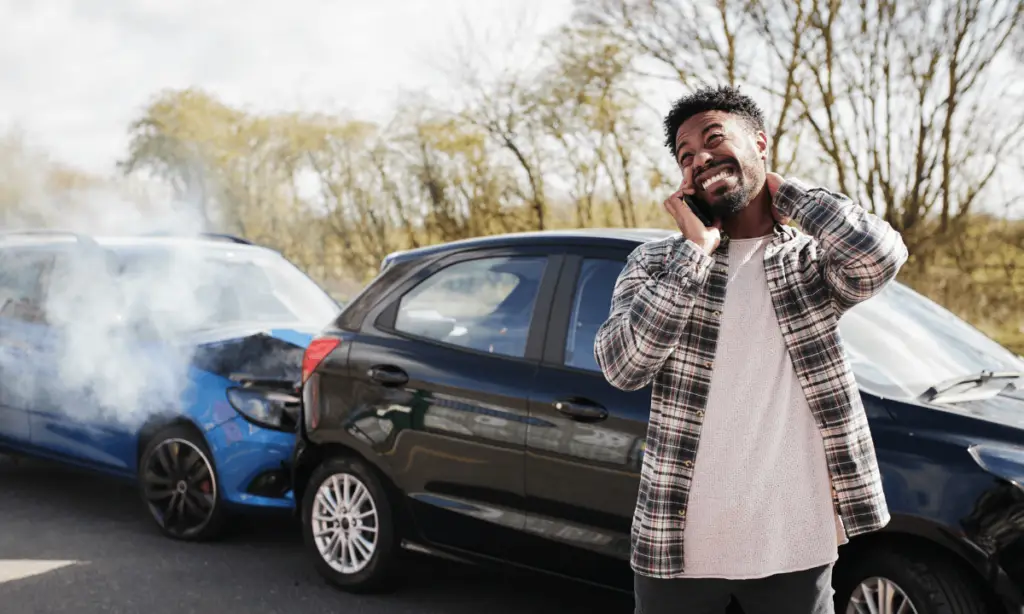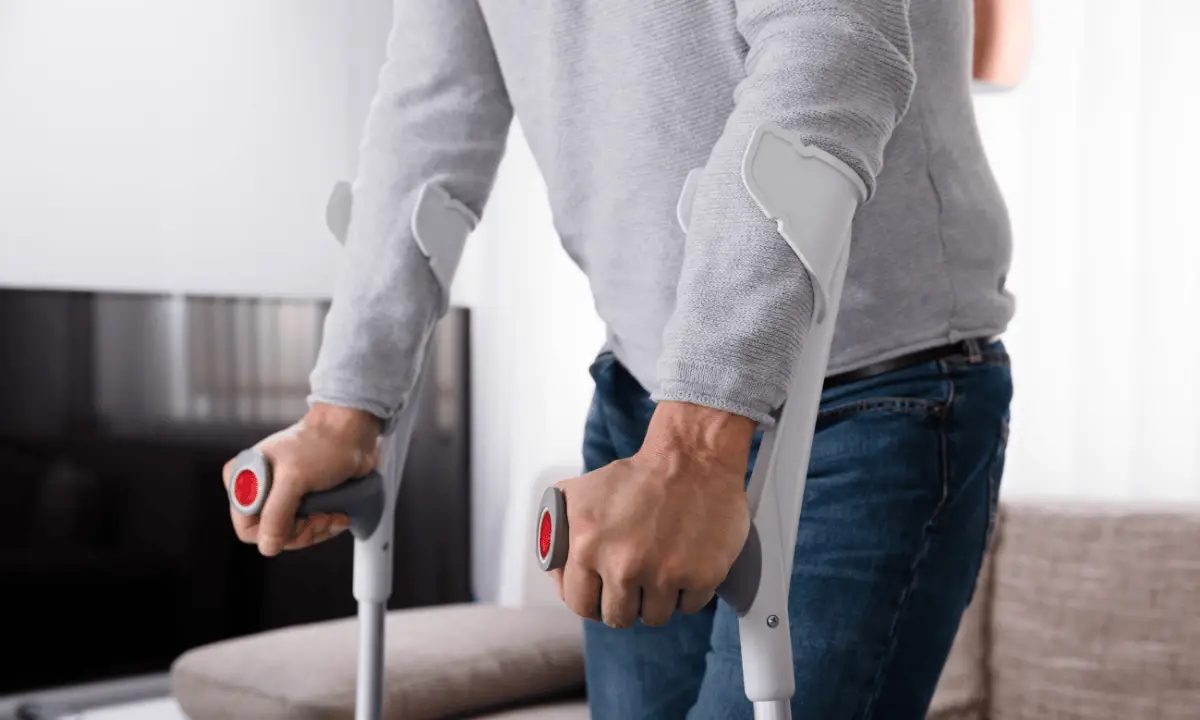If you’ve been in an accident while driving your personal vehicle for work, you’re probably feeling overwhelmed and unsure of where to turn. Maybe you were on your way to a client meeting, running an errand for your boss, or travelling between job sites when the crash happened. You weren’t commuting home and it wasn’t just a personal trip. You were working. But now you’re left wondering what this means for your job, your health, and whether you’re entitled to workers compensation and motor vehicle accident compensation.
It’s more common than people realise to be injured in a car accident during work hours, especially when using your own car. Many workers across NSW regularly use their personal vehicles for work tasks without thinking twice about what might happen if something goes wrong. The lines between personal and professional driving can blur quickly, and the legal implications can get confusing fast.
Can you still make a workers compensation claim if it wasn’t a work car? What if the accident was partly your fault? Are you covered under workers compensation in NSW for a car accident while on the job? Can you also claim compensation from the green slip insurer of the at fault vehicle?
At Withstand Lawyers, we’ve helped countless workers across NSW who were injured while driving for work. We understand how complicated these situations can be and how important it is to get the right advice early. In this article, we’ll break down everything you need to know.

Can You Claim Workers Compensation If You're in a Car Accident During Work Hours?
If you’re injured in a car accident while working, even if you were driving your own vehicle, you may still be covered under workers compensation in NSW. The key factor is whether the travel you were doing at the time of the accident was part of your job.
Driving between job sites, attending off-site meetings, delivering goods, or running work-related errands usually falls under the definition of “in the course of employment.” If your employer directed you to do something that required travel, and the accident occurred during that task, there’s a strong chance you’re entitled to compensation.
However, things get more complicated if you were taking a personal detour, making an unapproved stop, or if your employer argues that the travel wasn’t necessary.
Having legal guidance early on can make all the difference in proving your case. If you’re uncertain about whether you are eligible for workers compensation entitlements, contact our team of workers compensation lawyers today for a free claim assessment.
Understanding Work-Related Car Accidents
Not every car accident that happens during working hours qualifies as a work accident. To be covered, the incident must have a clear connection to your work duties.
Examples of work-related car accidents include:
✅ Driving to or from a client meeting
✅ Transporting equipment for your employer
✅ Making deliveries for your company
✅ Travelling to a second job site or workplace
✅ Picking up supplies during work hours at your boss’s request
If you were doing something directly related to your employment at the time of the accident, it will likely be considered work-related under NSW compensation laws.
Even if you were using your own car, you can still be eligible for support such as medical expenses, weekly payments, and rehab. The critical factor is that the travel was for work, not for personal errands or unauthorised detours.
Personal Vehicle vs Work Vehicle: What’s the Difference Legally?
Many workers assume that using a personal car means they’re not covered. That’s not true. Whether you’re in a personal vehicle or a company vehicle, the law focuses on what you were doing, not what you were driving.
In NSW, you can still make a workers compensation claim if you’re injured while driving your own car, as long as you were performing a task for work. The fact that it’s a personal vehicle doesn’t change your rights if you were clearly “on the job.”
That said, there can be insurance differences. A company vehicle may have employer insurance to cover damages, while your personal vehicle might fall under your private car insurance for repairs or third-party liability. Workers compensation focuses on your injury and its connection to work. It’s not about who owns the car.
If you’re unsure whether your trip counts as work-related, or if your employer is pushing back, contact our experienced team of workers compensation lawyers for a free claim assessment so you know where you stand.
Key Factors That Affect Your Claim After a Work-Related Car Accident in a Personal Vehicle
When you’ve been in a car accident while driving your personal vehicle for work, it’s not always straightforward to prove your eligibility for workers compensation. Several key factors can impact your claim — from the evidence you provide to how clearly your trip was connected to your job. Understanding what influences your claim can help you avoid common pitfalls and strengthen your case from the start. Because your injury occurred due to a car accident, you could also claim compensation from the greenslip insurer of the at fault vehicle, regardless of whether you were working or not.
Proof of Employment Duties at Time of Accident
One of the most important elements in any workers compensation claim in NSW is proving that the accident happened in the course of employment. It’s not enough to say you were working — you need to back it up with evidence that clearly shows the travel was part of your job.
This might include:
✅ A clear timeline of your workday showing what task you were completing and where you were travelling
✅ Emails or messages from your employer instructing you to attend a meeting, make a delivery, or run an errand
✅ Calendar entries, delivery logs, or job rosters showing where you were expected to be at the time
✅ GPS or phone records to help confirm your location and route
✅ Witness statements if anyone can verify you were performing work duties
The more direct the link between your travel and your work duties, the stronger your claim will be. If there’s uncertainty, such as if you made a personal detour, insurers may challenge your claim. That’s why gathering the right documentation early on is so important. If you’re unsure what qualifies as proof of employment at the time of the accident, contact our experienced team of car accident lawyers today and we’ll handle every step of your claim on a No Win No Fee basis.
Insurance Implications When Using a Personal Vehicle for Work
💼 Workers Compensation: covers your injuries and related medical/treatment expenses, but not damage to your vehicle. This is your legal right through your employer’s insurance policy if the accident occurred while you were working.
🚗 Comprehensive Car Insurance: if you have this, it may cover damage to your personal vehicle.
🚗 CTP Insurance (Green Slip): this is mandatory in NSW and covers injuries you cause to other people in an accident. It also covers your own injuries if you’re at fault in the accident.
Some employers may also have a motor vehicle policy that covers employees using personal vehicles for work, but this isn’t always the case. If your employer or insurer is shifting blame, or you’re feeling overwhelmed by the legal jargon after a work-related accident, our personal injury lawyers are here to help.
At Withstand Lawyers, we’ve helped countless workers navigate these issues, especially when insurance complications delay or reduce rightful compensation. If you’re unsure how your personal vehicle use affects your claim, we can give you the answers you need and fight for your entitlements. Contact us today for a free claim assessment.

Your Rights After a Car Accident While on the Job
If the car accident happened while you were working, you may be entitled to a range of benefits under NSW workers compensation laws, including:
Weekly Payments for Lost Wages
Medical and Hospital Expenses
Travelling Expenses
Rehabilitation and Return to Work Support
Lump Sum Payment for Permanent Impairment
These rights apply regardless of whether you were in a company vehicle or your own personal car. The focus is on whether the accident occurred “in the course of employment.”
Can You Claim Workers Compensation for an Accident in Your Own Car?
Yes, you can claim workers compensation for an accident in your personal vehicle. In NSW, workers compensation isn’t limited to accidents involving work vehicles. If you were using your own car to carry out work duties, such as visiting a client, delivering supplies, or travelling between job sites, you are still eligible to make a claim.
The key is proving that the travel was directly connected to your job. For example, you were sent by your employer to pick up equipment or travelling between work sites during your shift.
Even if your employer didn’t give you a company car, they still have a duty of care while you’re working. If you’re injured while driving for work, you’re likely covered under the NSW workers compensation scheme.
It’s a common misconception that workers compensation only applies if you were in a company vehicle. That’s not the case and you should never miss out on support just because you used your personal vehicle.
What If You Were Partially at Fault or Driving Outside Work Duties?
You might be thinking, “But I was partly to blame… does that mean I can’t claim?”
In most cases, workers compensation in NSW is a no-fault system. This means you can still receive benefits even if you were partly at fault for the accident. Whether you misjudged a turn, made a driving error, or failed to see another vehicle, you may still be entitled to support, because the scheme is designed to help injured workers recover, not punish mistakes.
However, if you were doing something outside your job duties, things get more complex. However, you may be covered if you make a motor
vehicle accident compensation claim against the greenslip insurer of the at
fault vehicle. If your employer can show that your actions had nothing to do with work, like taking a personal detour or running your own errands, it may affect your eligibility. But even then, it’s not always black and white. Context matters.
❓ Were you still on the clock?
❓ Was the detour minimal?
❓ Did your employer know or allow the task?
If there’s any doubt about your eligibility to claim workers compensation, it’s a good idea to seek legal advice. At Withstand Lawyers, we can help you understand your position, gather the right evidence, and fight for your entitlements, especially when the line between work and personal time isn’t so clear. Contact us today for a free claim assessment so you know where you stand.
What Compensation Can I Claim After a Car Accident While Driving My Personal Vehicle for Work?
If you’ve been injured in a car accident while using your personal car for work in NSW, you may be entitled to more than just medical support. Depending on the severity of your injuries and the impact on your life and ability to work, different types of compensation may be available, including through workers compensation, motor accident compensation and Total and Permanent Disability (TPD) insurance.
NSW Workers Compensation Claims
If you were injured in a car accident while driving your personal vehicle for work in NSW, you may be legally entitled to claim workers compensation. This applies even if you weren’t driving a company vehicle. What matters is whether the travel was part of your work duties.
The NSW workers compensation scheme, managed by the State Insurance Regulatory Authority (SIRA), is designed to help employees recover, return to work, and manage the financial impact of injury. It’s a no-fault system, meaning you don’t need to prove anyone was to blame, only that the accident occurred while you were working.
Here’s a breakdown of what you may be entitled to:
If your injuries from the car accident prevent you from working, you may receive income support to cover your lost earnings:
First 13 weeks: You can receive up to 95% of your pre-injury average weekly earnings.
Weeks 14–260: Payments may continue at up to 80%, depending on your capacity to return to some form of work. If you have capacity to work of 15+ hours, you can receive 95%
Beyond 260 weeks: Payments can continue if you’ve been assessed with a Whole Person Impairment (WPI) of over 20%,
These payments can be vital if your injury affects your ability to earn a regular income.
Returning to work after a serious injury can be challenging, but the scheme provides support to help you transition. This may include:
Modified duties or workplace adjustments
On-the-job rehabilitation services
Retraining or upskilling if you can’t return to your previous role
Case management to help coordinate your return-to-work plan
If your injury permanently prevents you from returning to your old job, you may also be assisted in finding suitable alternative employment.
All reasonable and necessary treatment expenses related to your work injury are covered under the NSW workers compensation scheme. This includes:
GP visits and hospital care
Physiotherapy, chiropractic care, and other allied health services
Surgery or specialist treatment
Psychological treatment if you are also experiencing emotional or mental health symptoms
This coverage ensures you can focus on recovery without worrying about out-of-pocket medical costs.
If your injuries lead to a permanent impairment, whether physical, psychological, or both, you may be entitled to a lump sum compensation payment, and a lump sum payout known as a work injury damages claim.
This is based on a Whole Person Impairment (WPI) assessment, usually conducted at least 6 months after your injury. An Independent Medical Examiner (IME) will assess the lasting effects of your injuries and determine your WPI rating.
To qualify for a lump sum payment:
Physical injuries must meet a minimum 11% WPI threshold (or 1% if you’re an exempt
worker – i.e sworn police officer, ambulance paramedic and firefighter)Psychological injuries must reach 15% WPI threshold
These payments and payout are designed to recognise the long-term impact your injuries have had on your ability to work and enjoy life as you once did. To find out how much your claim could be worth, call our experienced workers compensation lawyers today on 1800 952 898 for a free claim assessment.
Total and Permanent Disability Claims
If your injury from the car accident is severe enough that you’re unlikely to return to work, you may be eligible to make a TPD claim through your superannuation fund.
A TPD claim is separate from workers compensation and can result in a lump sum payout if you meet the definition of permanent disability under your superannuation policy. If you are unable to return to work in your previous position, or any other role that you have training or experience in, you may be able to make a claim. A TPD claim is especially important if your injuries have ended your career or left you unable to return to work in jobs you’ve worked in before or
qualified to do.
For a TPD claim after an accident while driving your personal car for work:
- You don’t have to prove someone else was at fault
- The injury or condition preventing you from returning to work doesn’t
need to be caused by work or the car accident - You can make a TPD claim even if you are already claiming workers compensation
TPD claims are separate from workers compensation claims, and one does not affect the other.
If you are unsure if you are eligible to claim or whether you were covered at the time of the accident, contact our experienced team of TPD lawyers today and we’ll assess your eligibility with our free claim assessment.
Motor Vehicle Accident Compensation NSW: What You Can Claim
Did you know you could make a separate motor vehicle accident compensation claim to your workers compensation claim? Depending on the facts of your case, a motor vehicle accident compensation claim may result in a more favourable outcome than a workers compensation and work injury damages claim.
If you were injured in a car, motorbike, truck or bicycle accident in NSW, you may be entitled to motor vehicle accident compensation. The claim is made with the CTP (Greenslip) insurer of the at-fault vehicle. This can include your own insurer if you were mostly at fault.
Immediate Entitlements
You can claim weekly income support and medical expenses for up to 12 months, regardless of who caused the accident or how minor your injuries may be. These payments are based on your pre-accident gross income and are taxed like normal wages.
Entitlements Beyond 12 Months
To claim beyond 12 months or receive a payout, you must not be mostly at fault and your injuries must be non-threshold. This includes injuries like fractures, surgery, nerve damage or a diagnosed psychological condition such as PTSD or depression.
Lump Sum Compensation
A lump sum payout may include compensation for past and future loss of income, calculated based on your average weekly earnings and what earnings you would have most likely earned, if the accident didn’t happen, projected to retirement.
You may also be eligible to claim pain and suffering if your physical or psychological injuries reach 11% whole person impairment. This typically applies where there are multiple physical injuries or surgery to a key body part, or in psychological cases where the injury seriously impacts your ability to work, manage daily tasks, or maintain relationships.
We’ve helped thousands of people across NSW recover compensation for car accidents. Our no win, no fee policy is clear, and we tell you upfront how our fees are calculated based on the result and the work done. Start with a free claim check today with one of our experienced car accident lawyers across NSW.

Adam, a 42-year-old project coordinator from the Central Coast, was using his personal car to travel to between job sites when another driver crashed into him at an intersection. The crash shook him up, but he initially hoped he’d be back to work within a few days.
That didn’t happen.
Doctors diagnosed Adam with a rotator cuff tear and lumbar disc injury, requiring extended treatment and time off work. Unsure of his rights, he contacted Withstand Lawyers for a free claim assessment.
We quickly confirmed Adam’s travel was work-related and lodged a workers compensation claim, securing payments for his treatment and lost income. When his injuries turned out to be long-term, we arranged a medical assessment, which gave him a 15% Whole Person Impairment (WPI) rating.
Adam successfully received a $680,000 lump sum payout, covering his pain, suffering, past and future income loss. That compensation helped him support his family and move into a less physical role.
Adam’s story is proof that even if you’re using your own car, you still have the right to claim. And having the right legal team can make a life-changing difference.
How to Claim Workers Compensation After a Car Accident in Your Personal Vehicle for Work in NSW
Seek Medical Support and Diagnosis
The first and most important step after a car accident while driving your personal vehicle for work in NSW is to see your general practitioner (GP). This isn’t just for your health, it’s also a vital part of starting your workers compensation claim.
Here’s what your GP will help you do:
Assess Your Injuries:
Not all injuries are immediately obvious. Some, like whiplash, soft tissue damage or psychological trauma, may develop over time. Let your GP know you were involved in a car accident while working so they can carry out a thorough assessment and provide the right treatment plan.
Establish the Work Connection:
Your doctor must clearly document that the accident, and your resulting injuries, occurred in the course of your employment. This link between the incident and your work duties is crucial for your claim to be accepted.
Obtain a Work Capacity Certificate:
Also known as a Certificate of Capacity, this is an essential document in any NSW workers compensation claim. It outlines your diagnosis, the impact on your ability to work, and the treatment you require. This certificate is submitted as part of your claim and will be updated as your recovery progresses.
Notify Your Employer
Under NSW workers compensation laws, you must inform your employer about your injury as soon as possible after the accident. Early notification is crucial to start your claim and ensure your rights are protected.
What You Need to Do:
You don’t need to share every personal medical detail, but you must provide enough information so your employer can report the injury to their workers compensation insurer. This includes:
When and where the accident happened
That the injury occurred during work-related travel
The type of injuries you have or suspect you have
Why It Matters:
Your employer has a legal obligation to notify their insurer within 48 hours of being told about your injury. Delaying this step could slow down the entire claims process, affecting your access to medical treatment and income support.
Lodge Your Workers Compensation Claim
After you notify your employer, the next step is to lodge your workers compensation claim through their insurer. This is where formal paperwork begins.
What You’ll Need to Submit:
To lodge your claim, you’ll generally need
A completed Workers Compensation Claim Form
Your Work Capacity Certificate from your GP
Any relevant supporting documents, such as incident reports, emails, or witness statements showing that the travel was work-related
It’s important to be detailed and consistent in your claim form. Any gaps or unclear information can cause delays or even lead to your claim being disputed.
This process can feel overwhelming, especially after an accident. Our experienced team at Withstand Lawyers can help you prepare and submit your claim properly, giving you the best chance of a fast approval. Contact us today to see how we can help you make a claim on a No Win No Fee basis.
Insurer’s Decision
The insurer will assess your claim and determine whether to accept or deny it. They may contact your healthcare providers or employer for additional information during their investigation.
If your claim is accepted, you’ll begin receiving entitlements, such as weekly payments or medical expense coverage, based on your injury and circumstances.
If your claim is denied, you have the right to dispute the outcome. Contact our experienced team of workers compensation lawyers today for a free claim assessment so you know your options.
How Withstand Lawyers Can Help After a Work-Related Vehicle Accident
Being involved in a car accident while driving your own vehicle for work can leave you dealing with more than just injuries. There’s the confusion of insurance, the stress of dealing with your employer, and the pressure of managing expenses while you recover. At Withstand Lawyers, we understand how deeply this can affect your life — and we’re here to take that burden off your shoulders.
Here’s why injured workers across NSW trust us to handle their compensation claims:
✅ Experience in Work Accident Claims
We’ve helped countless workers across NSW make successful claims after being injured while driving for work. Whether you were running errands, attending a site, or travelling for your job, we know how to prove your entitlement and fight for maximum compensation.
✅ We Handle Everything
From lodging your workers compensation claim to organising medical reports, negotiating with insurers, and pursuing common law or TPD claims if needed. We manage the full legal process so you can focus on getting better.
✅ No Win, No Fee Guarantee:
You won’t pay us anything unless we win your case. That’s our promise. We believe everyone should have access to quality legal support, regardless of their financial situation.
✅ Free Claim Assessment
Not sure where to start? We’ll review your situation at no cost, explain your rights, and guide you through the best steps to take, with no pressure and no obligation.
Getting injured on the job while using your own car doesn’t have to mean navigating the system alone. Withstand Lawyers is here to make sure you understand your rights and get the compensation you deserve.
📞 Call us now on 1800 952 898 or fill out our free claim assessment form to get started.

Issa Rabaya
• Bachelor of Laws
• Graduate Diploma in Legal Practice
• Approved Legal Service Provider to the Independent Review Office
• Member of the Law Society

Issa Rabaya
• Bachelor of Laws
• Graduate Diploma in Legal Practice
• Approved Legal Service Provider to the Independent Review Office
• Member of the Law Society
Car Accident In Personal Car While Working FAQ's
Yes. As long as you were carrying out work-related duties, such as travelling between job sites, attending meetings, or running errands for your employer, you’re likely entitled to workers compensation in NSW, even if you were using your personal vehicle.
No. Workers compensation in NSW is a no-fault scheme, meaning you don’t need to prove fault to receive benefits. However, if another driver was clearly at fault, you might also be eligible to pursue a motor vehicle accident claim for further compensation.
No — what matters is whether the travel was part of your job. Using a personal car does not exclude you from workers compensation benefits, as long as the trip was for work-related purposes.
6 months for a workers compensation claim and 3 months for a motor vehicle accident claim. You can still lodge out of time but will need to provide a reasonable explanation for the delay. Contact our team today for a free claim assessment so you are fully informed of your entitlements.
No. It’s illegal for an employer to fire or disadvantage you simply for making a legitimate workers compensation claim. If this happens, you may have grounds for an unfair dismissal or general protections claim.




